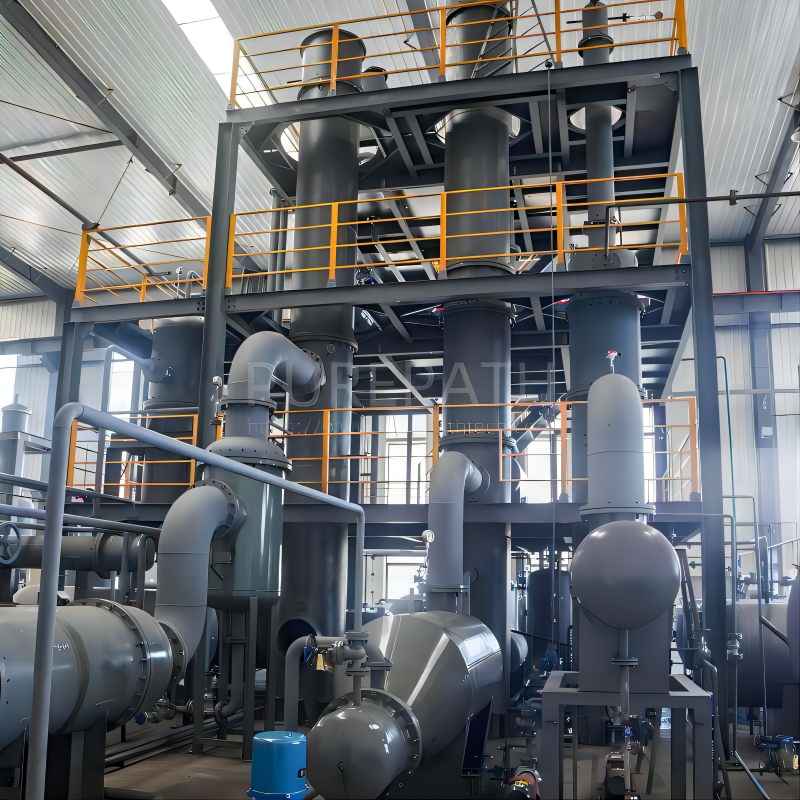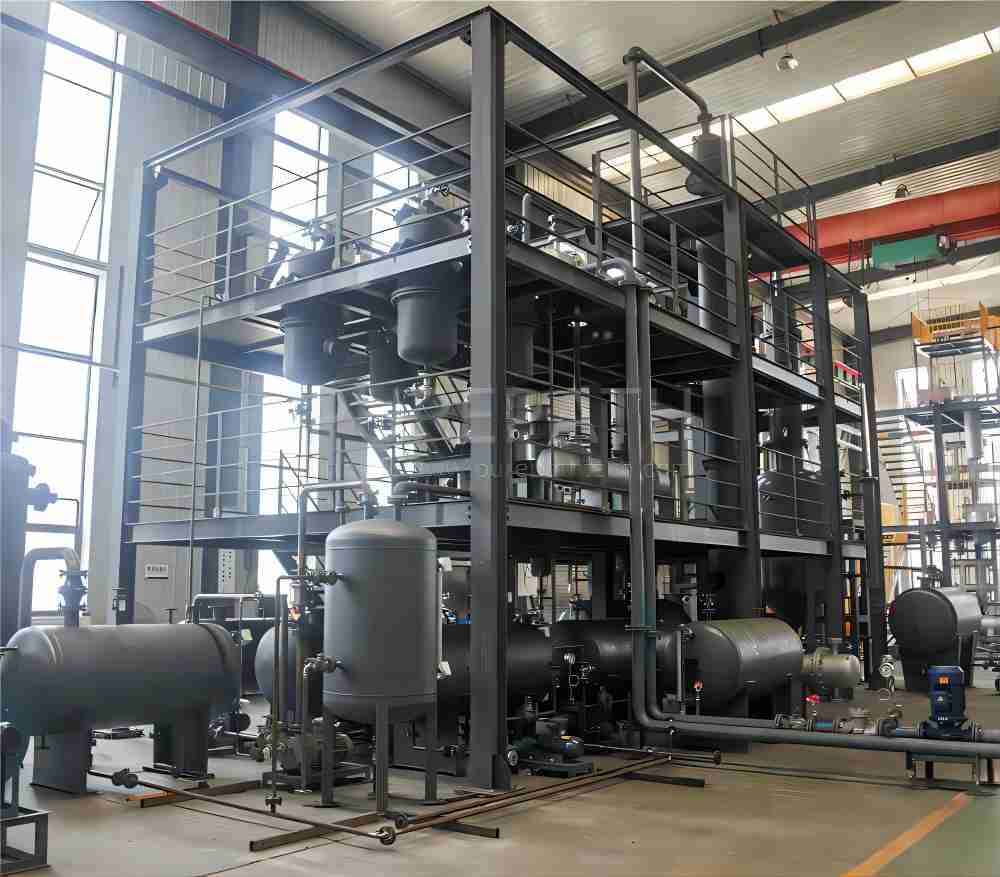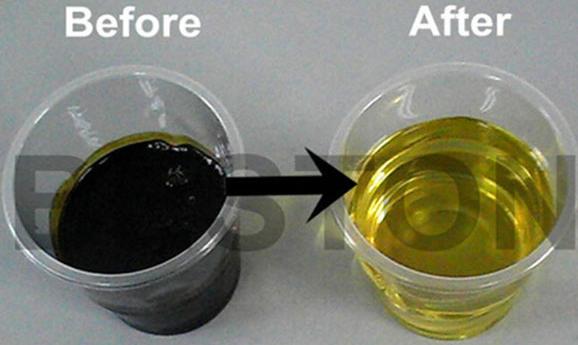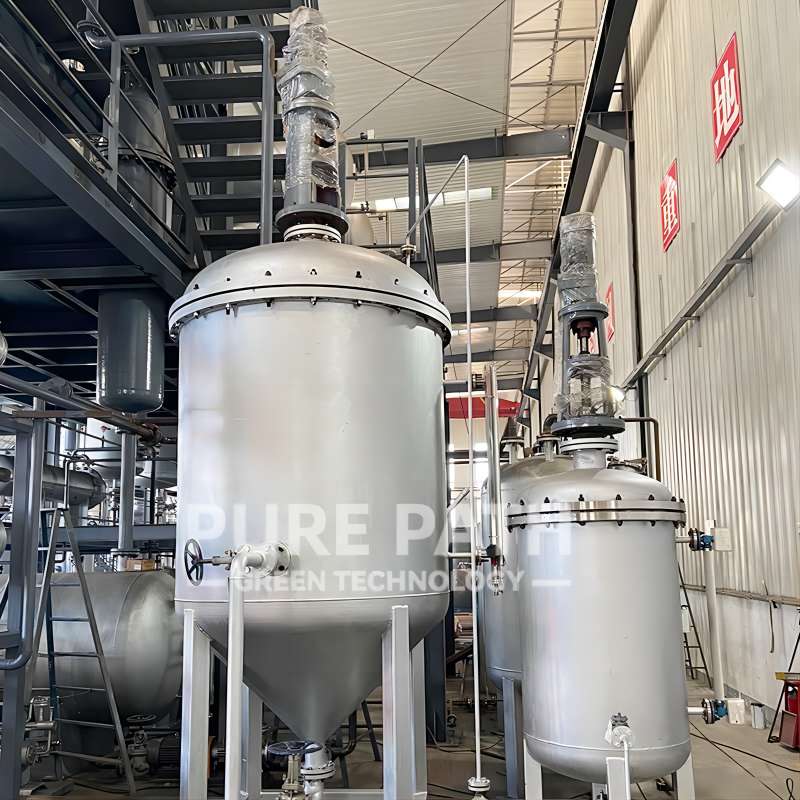Understanding Used Motor Oil Recycling: From Collection to End Products
The automobile, arguably one of the most transformative technological advancements of the past century, has become an indispensable part of daily life for billions globally. While offering undeniable convenience, its operation comes with a significant downside: a considerable detrimental effect on the environment. Cars consume resources, emit pollutants, and generate a large amount of non-biodegradable waste, including tires, plastic chassis components, transmission fluids, and used motor oil.
Disposing of used motor oil responsibly is crucial, as improper disposal can contaminate soil and water. Fortunately, instead of throwing it away, you can participate in used motor oil recycling. This environmentally friendly practice offers a sustainable solution for managing this common automotive waste product.

Where Can I Recycle Used Motor Oil?
There are a few places you can take your used motor oil to be recycled:
- Auto parts stores and repair shops: Many auto parts stores and repair shops, such as Advance Auto Parts, O’Reilly Auto Parts, Jiffy Lube, and AutoZone, accept used motor oil for recycling. These locations typically have designated containers where you can drop off your used oil. It’s always a good idea to call ahead to make sure the store accepts used oil and to inquire about any specific requirements they may have, such as limits on the amount of oil you can bring in.
- Household hazardous waste (HHW) collection centers: Many communities have HHW collection centers that accept used motor oil, as well as other household hazardous materials such as paint, batteries, and pesticides. You can find the location of your nearest HHW collection center by searching online or contacting your local waste management department.
- Curbside recycling: Some communities offer curbside recycling for used motor oil. If your community offers this service, you will typically be provided with a special container to collect your used oil. Be sure to check with your local recycling program for specific instructions on how to prepare and recycle your used motor oil.
What is Motor Oil?
Motor oil serves as a vital lubricant for your car’s engine. It fulfills several essential functions necessary for the smooth operation and longevity of the engine. One primary function is reducing friction between the moving parts within the engine. Additionally, it cleans the engine by carrying away dirt and contaminants, cools it by dissipating heat generated during operation, and shields it from wear and tear caused by high-speed and high-temperature conditions. Traditionally, motor oil comprised a basic blend of base oil and additives to perform these functions effectively.
However, with advancements in technology, modern synthetic oils have elevated lubrication and protection capabilities. These synthetic oils not only minimize friction but also contribute to improved engine performance and durability due to their advanced composition. Moreover, some synthetic oils offer environmental advantages over conventional options.
What are the Common Additives in Motor Oil?
Motor oil primarily consists of base oil, derived typically from crude oil or natural gas, and a mixture of additives. Despite the environmental benefits of synthetic oils, the base oil remains a pollutant and relies on non-renewable resources, making up about 70-90% of the oil composition.
The remaining 10-30% comprises various additives, including:
- Dispersants: These additives ensure that dirt and contaminants remain suspended in the oil, facilitating their removal during oil changes.
- Detergents: Engineered to clean internal engine components and prevent the formation of sludge.
- Corrosion inhibitors: Protect metal engine parts from rust and corrosion, thus prolonging the engine’s lifespan.
- Viscosity index improvers: Maintain the oil’s consistency across a broader temperature range, ensuring optimal lubrication in varying conditions.
- Friction modifiers: Further decrease friction between moving parts, contributing to smoother engine operation.
While these additives are essential for engine health, their specific characteristics and environmental impacts may differ. It’s crucial to responsibly dispose of used motor oil through recycling programs to mitigate environmental harm.

The Fate of Used Motor Oil: Recycling, Re-refining, and Beyond
Used motor oil, while essential for engine health, poses a significant environmental challenge when not disposed of responsibly. Fortunately, several options exist beyond simply throwing it away:
1. Recycling and Re-refining
Re-refining: This process involves treating used oil to remove impurities and contaminants, essentially restoring it to a “like-new” state. This re-refined oil can then be used as a base stock for creating new motor oil, reducing reliance on crude oil extraction. While not entirely eco-friendly due to the processing involved, it’s significantly better than improper disposal.
2. Alternative Uses
Fuel Source: Used motor oil can be burned as fuel in large industrial settings, such as power plants and cement kilns. While the American Petroleum Institute claims these facilities can minimize pollution emissions during this process, independent verification is crucial due to potential bias. Nevertheless, utilizing used oil for energy generation still represents a form of resource recovery.
3. The Importance of Responsible Disposal
It’s crucial to remember that improper disposal of used motor oil, such as pouring it down drains, can have devastating consequences. The Environmental Protection Agency (EPA) warns that a single oil change’s worth of used oil, if improperly disposed of, has the potential to contaminate up to 1 million gallons of water.
Therefore, it’s imperative to find responsible disposal methods for used motor oil. This can be done by taking it to designated collection centers or participating in oil change facilities that accept used oil for recycling purposes. By making informed choices, we can minimize the environmental impact of this essential automotive product.
Why Recycle Used Motor Oil?
While many recognize the importance of recycling everyday materials like paper and plastic, used motor oil recycling remains an underutilized practice. This often stems from two key factors:
- Limited Awareness: Many businesses, unaware of available options, fail to offer used oil recycling to their customers. Similarly, individuals often lack knowledge about the possibilities beyond simply avoiding drain disposal.
- Misinformation: Inaccurate information can create confusion and discourage participation. While everyone understands the harmful effects of dumping oil down the drain, the broader benefits of recycling may not be widely known.
Here’s why prioritizing used motor oil recycling is crucial:
- Environmental Protection: Even small amounts of used oil (around 1 gallon) can contaminate vast quantities of water, posing a significant threat to aquatic life and ecosystems. Recycling keeps this harmful material out of our waterways.
- Resource Conservation: Used oil can be re-refined into a valuable base stock for new lubricating oils, reducing our reliance on virgin crude oil and promoting sustainability.
- Responsible Disposal: Choosing recycling ensures proper handling of used oil, preventing environmental damage caused by improper disposal methods.
Spreading awareness about available programs and dispelling misconceptions can play a critical role in increasing participation in used motor oil recycling. By working together, we can minimize environmental impact and create a more sustainable future.

How Used Oil Recycling Plants Give Motor Oil a Second Life?
Used oil contains harmful contaminants that, if not disposed of properly, can pose serious risks to ecosystems and human health. Used oil recycling plants offer a sustainable solution to this problem by efficiently processing and repurposing used motor oil. This part explores the process by which these recycling plants dispose of used motor oil.
1. Collection and Initial Processing
- Used oil collection: The journey begins with responsible individuals and businesses collecting used oil in designated containers. Reputable oil change facilities, auto parts stores, and hazardous waste collection centers often serve as collection points.
- Sorting and Screening: Upon arrival at the recycling plant, the used oil undergoes a preliminary sorting process. This may involve separating different oil types (e.g., motor oil, hydraulic oil) and removing any large contaminants like debris or metal fragments.
2. Pre-treatment and Conditioning
- Settling and Dehydration: The oil rests in large tanks, allowing heavier impurities like water and sediment to settle at the bottom. Specialized equipment then removes this water content, as its presence can hinder the subsequent processing steps.
- Filtration: The oil is passed through fine filters to remove remaining suspended particles that could affect the quality of the re-refined oil.
3. Re-refining
- Distillation: This stage utilizes heat and vacuum technology to separate the used oil into various components based on their boiling points. Lighter components like gasoline and diesel are separated from heavier lubricating oil fractions.
- Hydrotreatment: The remaining oil fractions undergo a chemical process using hydrogen to remove impurities like sulfur and oxygen, which can negatively impact the quality and performance of the re-refined oil.
- Vacuum Distillation: The final stage of distillation further separates the oil into specific base oil fractions with varying viscosities (thickness) and performance characteristics.
4. Quality Control and Blending
- Rigorous Testing: The re-refined oil undergoes extensive testing to ensure it meets stringent quality standards and performance specifications for various applications.
- Blending and Additives: Depending on the intended use, the re-refined oil may be blended with specific additives to enhance its properties, such as anti-wear agents or viscosity modifiers.
5. The Final Products
- Re-refined Base Oil: The end product is a high-quality re-refined base oil, ready to be used in various applications, including:
- Production of new lubricating oils: This re-refined oil becomes a key ingredient in creating new motor oil, reducing reliance on virgin crude oil.
- Industrial lubricants: Re-refined oil can be used in various industrial applications, such as machine lubricants and hydraulic fluids.
- Fuel Source: In some cases, used oil that cannot be effectively re-refined may be used as a fuel source in specialized industrial facilities, often with strict emission controls.

Conclusion
The journey of used oil from your car’s engine to a valuable resource is a testament to the power of responsible recycling. Used oil recycling plants play a crucial role in transforming this potentially harmful waste into a sustainable solution. By employing sophisticated yet efficient processes, these facilities re-refine used oil into high-quality base oil, reducing our reliance on virgin crude oil and minimizing environmental impact.
Choosing to recycle used oil is a simple yet impactful way to contribute to a healthier planet. By working together, individuals, businesses, and recycling facilities can ensure this valuable resource finds a new life, protecting our environment and conserving precious resources for generations to come. Remember, the next time you change your car’s oil, seek out a responsible disposal option and contribute to a cleaner future.







